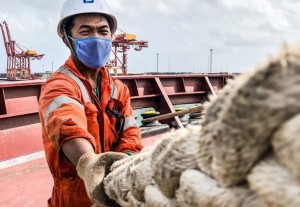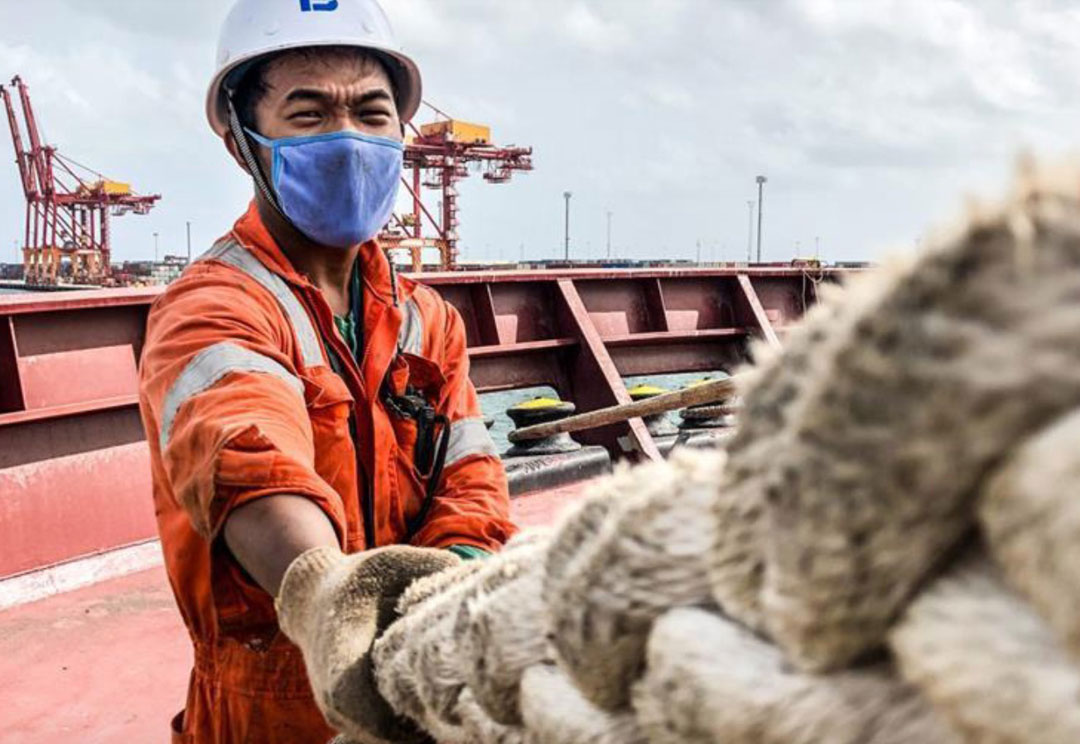
On Dec. 1, the United Nations designated mariners as key or essential workers, which in theory should facilitate crew changes on ships during the COVID-19 pandemic. The problem is there is no consistency in the protocols that countries or even states have in terms of allowing crewmembers to come ashore.
“It really depends on the company and the operation and where they go,” said Sean Kline, director of maritime affairs for the Chamber of Shipping of America. “(If) a ship pulls into L.A.-Long Beach harbor and the governor says we’re in a lockdown,” mariners can’t disembark. It even happens to U.S.-flagged ships that are simply trying to come home. “You can’t go to California, but Washington might let you in,” he added.
Kline cited the example of a mariner aboard a Danish-flagged ship who had a cardiac issue that was life-threatening, “but the ship wasn’t allowed to divert because the (local) mayor wouldn’t allow anyone to come ashore.”
For every mariner who can’t get off a ship due to the pandemic, there’s one stuck at home who can’t work to feed his or her family. It’s estimated that travel restrictions have impacted up to 400,000 seafarers.
On Dec. 17, the International Labour Organization (ILO) stated that governments had failed to comply with several provisions of the Maritime Labour Convention during the COVID-19 pandemic, including Article I (2) on the duty to cooperate. An ILO committee found that national signatories had “failed abjectly to protect the minimum standards … of seafarers’ rights as set out in international law. This includes basic rights such as access to health care, repatriation, annual leave and shore leave.”
Responding to the ruling, International Transport Workers’ Federation General-Secretary Stephen Cotton and International Chamber of Shipping Secretary-General Guy Platten issued a joint statement calling on governments to help mariners who are unable to leave their ships.
“This ruling clearly sets out that it is both legally and morally wrong for countries to continue to expect seafarers to work indefinitely supplying the world with food, medicine and vital supplies, while depriving them of their fundamental rights as seafarers, as workers and as humans,” Cotton and Platten said.
The statement insisted that mariners be allowed to disembark in ports for medical attention and be permitted to fly home when their contracts are finished. It also called on governments to let replacement crews through national borders to join a ship. To date, 46 countries have classified mariners as key workers.
“We welcome the news that 46 countries have designated seafarers as key workers, but more governments must now follow suit,” Platten told Professional Mariner. “They need to recognize the crucial role seafarers play in transporting food, medicine, energy supplies and other essential raw materials across the globe in the height of a global pandemic.”
Another group experiencing difficulty is third-party technicians who need to make repairs when a ship is in port. Local regulations in many areas are making it difficult for outside technicians to board. “If it wasn’t a transportation issue, it was a quarantine issue,” Kline said.
As COVID vaccines began to roll out at the end of 2020, International Maritime Organization Secretary-General Kitack Lim said the key-worker designation should ensure that seafarers and other maritime employees receive priority status to allow them to work and maintain global supply chains more efficiently.
“We need to help them get (to) where they need to be,” Kline said, referring to mariners. “Otherwise the Walmart and Target shelves are going to be empty.”

